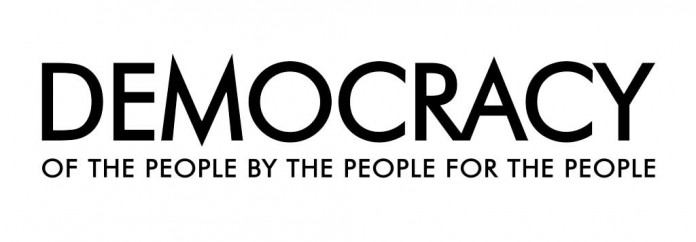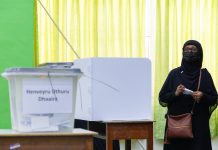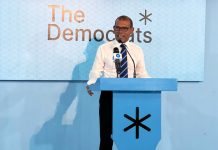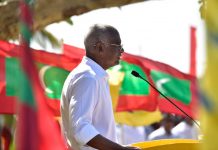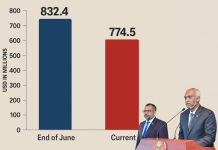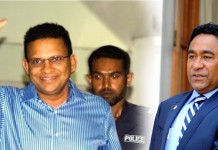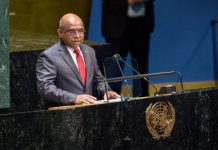For the few people around the world who follow the current events of Maldives, small island nation off the coast of India, the state of affairs is in apparent shambles. Perhaps that sentiment is not too far off, since political discontent has been widespread throughout the country, especially the period following the deposition of the first democratically elected president, Mohamed Nasheed, in 2012. To understand the current crisis, it’s worth going back to 2008 when Mohamed Nasheed became the country’s first democratically elected president. Nasheed had been a thorn in the government’s side for years. A democracy activist fighting against an entrenched 30-year-old dictatorship, the agitator had previously been imprisoned by the regime he eventually ousted. The economic situation combined with religious grievances under president-ship of Nasheed proved too much for the country’s political system to withstand. In February 2012, police and military forces sided with protestors and opposition parties, forcing the president to step down at gun point. “I was forced to resign with guns all around me, they told me that if I do not resign they did not hesitate to use arms,” former first democratically elected President Nasheed said in press interview.
Fresh elections were held in 2013, but Nasheed won only 45% votes, not enough to avoid a run-off election. Before those elections could be held, however, the Supreme Court controversially nullified the results and called for fresh elections. After that ballot, and a subsequent runoff election, Abdulla Yameen claimed victory. While Commonwealth electoral observers said they had some concerns over electoral best-practice in the re-run elections, they said the results were still credible. President Yameen is the half-brother of the dictator President Gayoom, whom Nasheed ousted in 2008.
Meanwhile, the circumstances surrounding President Yameen’s regime, which has been filled with conspiracies and arbitrary detentions, have been compared to the Maldives’ pre-democratic days under former President Maumoon Abdul Gayoom, half-brother of present President Yameen. Maumoon Abdul Gayoom had ruled the country for 30 years through a potent mix of Islamic nationalism, isolationism, and psychological oppression. But protesters and nascent political parties being led by Nasheed began to challenge his rule, which culminated in an election three years later. His successor, Mohamed Nasheed, ushered in a new era for the nation’s politics—only to be ousted from power in 2012 by regime loyalists and their proxies in a coup.
The Maldives is a quintessential tropical paradise. More than 1,000 coral islands make up the idyllic archipelago, which is more known more for its vulnerability to climate change than its political instability. Since Yameen’s elevation as President of Maldives, the political situation hasn’t really stabilized. In 2014 the country’s Supreme Court handed suspended jail sentences to the election commissioners who managed the first-round of elections the previous year, a move seen by some as a shot across the bow. The Yameen government has also moved to re-institute the death penalty, which would end a moratorium lasting more than 60 years. Clamp-downs on opposition demonstrators, human rights monitors, LGBT community and citizens have also worried international rights groups. In 2015 Nasheed was arrested and imprisoned for allegedly ordering the arrest of a judge in 2012. The move sparked mass protests from his supporters after a dramatic and widely criticized trial in which several of the judges reportedly also served as witnesses. Supporters say Nasheed’s imprisonment is part of a pattern on the part of President Yameen, who they claim is trying to eliminate opposition ahead of the country’s next elections in 2018.
Democracy is dead in the Maldives and have been replaced by thuggish authoritarian rule of President Yameen. In October 2015 Vice President Ahmed Adeeb was arrested, with the government claiming he was behind an explosion on a speedboat carrying President Yameen. The blast injured the president’s wife and two other officials but left the leader unharmed. The government claims it was an assassination attempt aimed at the president, but the FBI – which the government asked to investigate – said they could find no evidence that the blast resulted from an explosive device. The Vice President was sentenced to 15 years prison in June. A former Defence minister and an Islamist opposition leader are also serving time in detention. “Almost all opposition leaders are either in jail or in exile, fearing arrest and imprisonment if they return,” Amnesty International says.
In January this year, Nasheed was released from prison on ‘humanitarian grounds’ to visit UK for his medical treatment. Nasheed has now opted to seek political asylum in London from where he plans to continue fighting against unjustified and autocratic rule of President Yameen. The Maldivian government says the well-practiced media performer is talking down his home country by exaggerating threats of Islamic extremism and portraying a country on the verge of collapse. They accuse him of seeking to undermine a democratically elected leader and openly calling for a coup against President Yameen. “In the Maldives, a young and fledgling democracy, the fragile political equilibrium gained after decades of one party rule must be nurtured, not undermined,” wrote Abdulla Rifau, a member of President Yameen’s government.
Western countries are particularly concerned about the apparent rise in Islamic radicalism in the Maldives, along with growing ties to China, which is continuing to support the country with foreign aid, investment and increasing tourist flows. In recent days the Maldivian government has been deporting journalists as business groups call for a ban on foreign press, who they say are harming the country’s vital tourism industry. The government has also announced new plans to clamp down on foreign press, according to the BBC, as opposition parties continue to stratagise against President Yameen. Maldives’ political system has been highly volatile in recent years, to the point where opposition parties and exiled leaders are now quite openly discussing to overthrow the controversially elected president, Abdulla Yameen. With rhetoric as heated as ever, it appears there’s no sign of political stability arriving anytime soon to the troubled archipelago. That’s bad news for the country’s 400,000-strong population, whose economic prosperity continues to rely on international tourism.
On the other side of the spectrum, religious extremism continues to rise, as do anti-Western sentiments. Jihadism grows in appeal to people from many different backgrounds, including the capital, and incidences of Maldivians leaving to fight in Syria have grown. The widening divide in terms of views on religious freedom is undeniable and difficult to address. There is international concern over the government’s stance of limiting freedom of speech and criticism of theocratic policies. It paints an ironic picture then, that the average tourist sipping wine on a lounge chair by the clear blue sea, is unlikely to wonder why alcohol is illegal for actual citizens to consume. In the Maldives, hypocrisy is easily justified when it’s profitable, and human rights are for the powerful to interpret. With its suppressed conflicts, the island paradise isn’t always a land of sunshine and clear skies.

